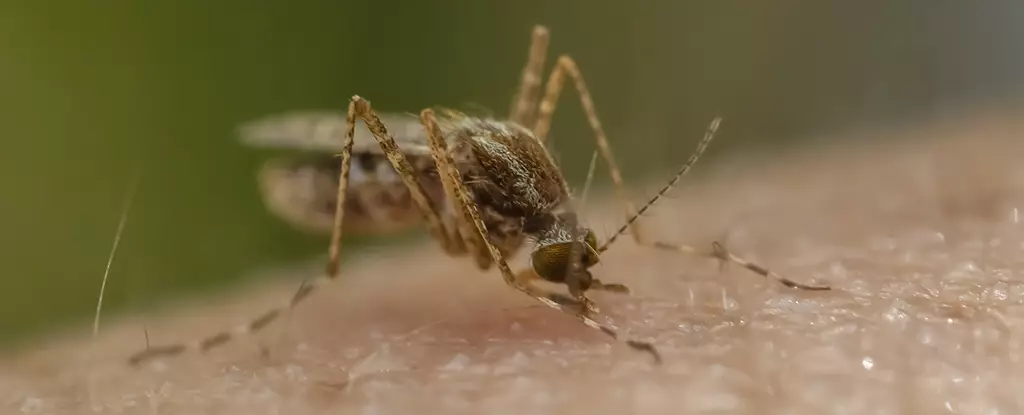Mosquitoes are often lamented as one of humanity’s greatest nuisances, primarily for their role in transmitting deadly diseases like malaria. However, recent research has taken a groundbreaking turn by harnessing these insects’ natural behavior to introduce a revolutionary malaria vaccine that shows remarkable promise. Researchers from Leiden University and Radboud University in the Netherlands have developed a novel vaccine that employs a genetically weakened strain of the Plasmodium falciparum parasite, which is responsible for malaria infections in humans.
The findings from this study highlight a substantial improvement in malaria prevention. Of the participants receiving the new GA2 vaccine, eight out of nine young adults exhibited immunity to malaria. This success rate stands in stark contrast to the 12.5% protection afforded by the earlier vaccine version (GA1), where only one out of eight individuals developed immunity. Such significant advancements indicate that this new iteration of the vaccine could potentially reshape malaria vaccination strategies globally.
The mechanics behind the GA2 vaccine are as fascinating as the results. The researchers utilized a method where a genetically altered version of the malaria-causing parasite is injected into the host organism via mosquito bite. Unlike its full-strength counterpart, this modified version is harmless; it is genetically engineered to inhibit its development within the liver. When the modified parasite enters the bloodstream, it cannot fully mature and therefore poses no risk of symptomatic malaria. According to vaccinologist Meta Roestenberg, this process effectively primes the immune system to combat genuine malaria threats by exposing it to a crippled version of the parasite.
This delay in parasite maturation is noteworthy. The GA2 variant takes approximately a week to develop within the liver, whereas the previous version matured in just 24 hours. This protraction allows the immune system ample time to recognize and respond to the presence of the parasite, ultimately fostering a more robust immune response. The study demonstrated that those vaccinated with GA2 produced a broader and more varied array of immune cells, a major factor likely contributing to the improved efficacy of the vaccine.
As with many medical advancements, the safety profile of the new vaccine is crucial. The study reported only minor side effects, predominantly localized redness and itchiness at the mosquito bite sites. To ensure participant safety, all individuals involved in the study were prescribed a regimen of anti-malaria medications after the data was collected. This careful oversight underscores the commitment of researchers to prioritize participant well-being while inching closer to a viable public health solution.
Global Implications and Ongoing Challenges
Despite this remarkable advancement, the fight against malaria remains an uphill battle. An estimated 250 million malaria cases occur annually worldwide, claiming hundreds of thousands of lives, particularly in vulnerable populations. Existing vaccines have limited efficacy, providing protection for only 50-77% of vaccinated individuals, and often for short durations. While the GA2 vaccine brings us a step closer to an effective long-lasting solution, widespread deployment remains a formidable challenge.
Moreover, the application of mosquitoes as a delivery system for vaccination, although effective in controlled studies, is not yet a practical solution for mass vaccination campaigns. The inherent complexity of relying on live insect vectors introduces logistical challenges that need to be addressed before this methodology can be translated into public health initiatives.
The initiation of the GA2 vaccine marks a significant breakthrough in malaria prevention strategies. The results not only highlight the potential of genetic engineering in vaccine development but also provide hope for more effective interventions against a disease that has persistently plagued humanity for centuries. The push for a comprehensive understanding of why this vaccine works so effectively is fundamental to refining future iterations and potentially eradicating malaria altogether. As the fight against malaria progresses, innovations such as the GA2 vaccine could serve as a beacon of hope in the global effort to eliminate this devastating disease.


Leave a Reply